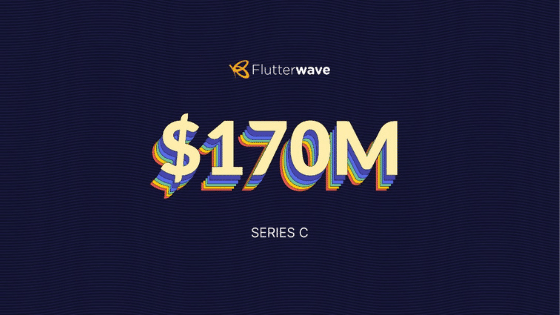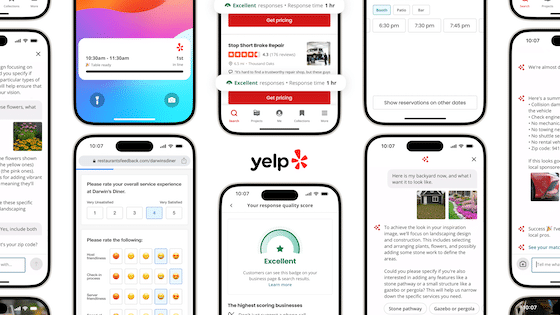It’s unlikely many of you have heard of Flutterwave. Its headquarters are in San Francisco. It’s SMB focused. And it sits in the white-hot fintech space (B2B payments). And now, with a fresh $170 million Series C round in the bank, the company has an estimated, unicorn-worthy valuation of just over $1 billion. Flutterwave has raised about $225 million since its 2016 launch, according to the company.
The latest round was led by Avenir Growth Capital and Tiger Global Management LLC. Other new and existing investors also participated. According to Crunchbase, Salesforce Ventures participated in the round. As did Worldpay, the U.K. fintech that formed a payments partnership with Flutterwave last January.
The reason many of you may be unfamiliar is the SMB market Flutterwave targets is in Africa, not the U.S. And while it has its HQ in the Bay Area, the company’s heart is in Lagos, Nigeria, a city known for its chaotic energy as well as its deep pool of engineering and entrepreneurial talent. Flutterwave was founded in Lagos by Olugbenga Agboola, a British-educated Nigerian who goes by “GB”. He began his career at PayPal in London. Then he put in his time in Africa’s banking industry and eventually wound up at Google, where he was a product manager for Wallets. Along the way, he attended executive management programs at MIT, Wharton, and Kellogg.
We are not quite sure how the company ended up with its San Francisco HQ. Our guess is it was a move designed to be close to the U.S. investor community. Most of Flutterwave’s investors are in New York or San Francisco.
Make the Continent into a Country
Flutterwave started as a B2B payments company helping African merchants conduct business online. It’s one of Africa’s leading e-commerce payments engines. It works with small merchants but also counts companies like Uber, Booking.com, and Jumia (kind of the Amazon of Africa), among its clients.
The company has expanded its product line over the years and now offers a pretty comprehensive stack for merchants. In addition to payments, it offers eCommerce storefronts, invoicing software, virtual debit cards, and more.
GB said in a blog post that the new funding will help Flutterwave on its mission to “unite Africa through payments.” When the company got started, sending payments across national boundaries within African was difficult to impossible. Now the company operates in 33 countries and it reports 290,000 merchants use its platform. In 2019, Flutterwave processed 107 million transactions worth $5.4 billion.
“We had a goal; to unite Africa through payments. We needed to make the continent feel like a country. We needed to unlock doors of opportunities for the over 500 million young people in this beautiful continent. Have we been able to achieve it? Well, we are just beginning. Will we achieve it? Definitely!” GB wrote.
“Nothing says ‘definitely‘ louder than the announcement that we have now raised a Series C round of $170m to improve our technology, product, customer support, expand to new frontiers, and continue to provide the support needed for everyday mom-and-pop shops to sell to global markets.”

A Massive Continent
Africa is a massive continent. Just in terms of physical geography, it dwarfs Australia, China, and the U.S. In fact, all of these countries would fit easily inside of Africa. The continent also boasts some of the world’s fastest-growing economies (at least before COVID) and a large, youthful population, as GB noted in his post.
Financial inclusion, meaning access to financial services, has been a perennial problem in Africa and other developing markets. it is also the biggest source of opportunity on the continent. On the consumer side, mobile money products like M-Pesa have revolutionized how Africans pay for goods and services. And on the B2B side, companies like Flutterwave are helping merchants use technology to modernize their businesses and allow them to conduct trade globally.
The African opportunity has attracted a lot of high-profile global investors. As we noted, Salesforce has put money into Flutterwave. Visa acquired a 20% stake in Fluterwave in 2019. And none other than Jeff Bezos has invested in Chipper Cash, another prominent African fintech with a San Francisco HQ.
And of course, Jack Dorsey famously said he would move to Africa, at least part-time, to explore opportunities on the continent. Dorsey has walked back that promise in the wake of pushback from Twitter investors. But his interest in the continent, mostly related to Square, underscores the opportunity. And finally, Jack Ma, wherever he is, has also been a major investor in Africa.
Show Me the Exit
African entrepreneurs definitely value Western investment. GB notes in his post that the company’s Series A made the difference between scaling or shutting down the business. But there is a growing feeling in Africa’s fintech community that Africa needs to grow its own tech investor class. And that will require more exits. After all, exits breed millionaires who become startup investors themselves.
We spoke recently about this subject with fintech entrepreneur Firas Ahmad. Frias grew up and was educated in the D.C. area but now runs AzamPay, a B2B payments processor based in Tanzania.
“I really hope to see some more exits for African founders so they can build their own VCs,” he said. “Because the best VCs are the ones who have lived the product you are trying to build.”
The African SMB fintech market had its first mega exit last year when Stripe acquired Paystack for an estimated $200 million. This was a major milestone for the market. And it gives African fintech entrepreneurs a sense of what might be possible if they build great companies. We wouldn’t be terribly surprised if Flutterwave is the next major exit. And it will go for a lot more than $200 million when it happens.




